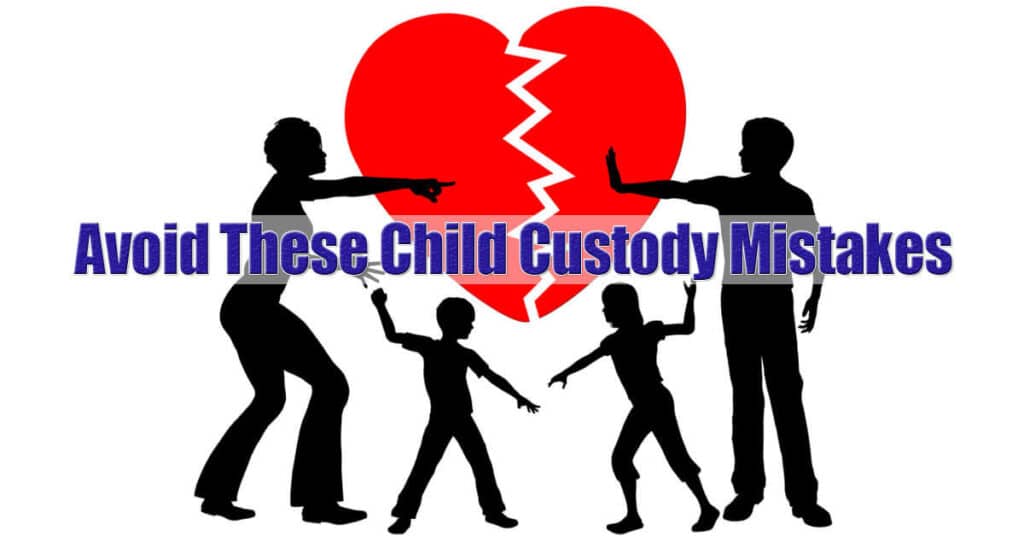As an experienced Long Island Divorce Lawyer I know that when parents cannot agree on a parenting plan that addresses child custody and visitation, the decision often goes to a family court judge to determine the child’s best interests and ultimately how these issues must be decided. Having a dispute about child custody can be one of the most emotionally challenging experiences that a person can endure.
As many parents believe that their child’s well-being is on the line in these disputes, the prospect of giving up custody or access to the precious child can feel like a tremendous threat. When the stakes are this high, parents can end up behaving their worst as they try to prove they are the most fit parent to win the Child Custody battle. It is incredibly important to realize that keeping your cool might be the best thing you can do. Below is a list of the things that people do wrong in child custody matters.
#1. Don’t Badmouth the Other Parent
Communicate your concerns about the other parent to your attorney, but not all over town, and not to your children. One of the biggest mistakes that parents make is relaying all of their concerns to their children, or allowing the child to overhear the badmouthing that goes on. Parents can be very creative when doing this in order to convince themselves that they are not doing anything wrong. They might describe to a friend how the other parent is a “no-show” or “only cares about himself”, or they might rant and rave about all of the individual events that have occurred recently in order to paint a picture that the other parent is a bad parent. This type of behavior can have a number of negative consequences.
Any statements, from the passive-aggressive comment to outright disparagement and name-calling, can have an impact on your child. The impact may add up to confusion, guilt, or uncertainty about how to behave. It might undermine the child’s relationship with the other parent, but it can also backfire, causing the child to become angry at you. Children are smart and have more insight into the situation than it may seem, and their insight will only increase over time. The child will likely recognize attempts to manipulate or get them to take sides, and this can ultimately hurt the family more.
#2. Beware Comments on Social Media
On a separate but closely related note, airing your grievances about the other parent on social media can create far more problems for you than benefits, if there are any benefits at all. While you might find temporary relief in venting your anger or frustration, the implications of publishing your dirty laundry on Facebook, Twitter, Instagram, or others can be long lasting in your child custody battle. First, note that even if you later calm down and decide to delete the post, the damage may already be done, as your post has likely become a “screenshot” on someone’s smartphone. Particularly if your statement is controversial or inflammatory, one of your social media friends or followers is likely to take a snapshot of it. When this gets back to your ex, he or she likely will not hesitate to bring it forward in court.
#3. Follow Court Orders, Even if Temporary
Also very important to note is that you must follow any temporary orders given by the judge, even if you disagree with them or find them unfair. Violating a court order on child custody or visitation, even if it’s a temporary one, shows the judge that you are unwilling to cooperate and will make things difficult for the family as a whole given the opportunity to do so. Following your temporary orders shows the judge that you will put your children and your family first, even when you are hurting or disagree with the terms.
#4. Expect that Judges Will Find Out & It Will Hurt Your Case
Finally, keep in mind that judges do not look fondly upon parents “behaving badly” in these circumstances. In fact, judges are aware of the damage that this behavior can cause in children of divorce, and are likely to hold you accountable. In many cases, children or others involved will tell the other parent about badmouthing that goes on, and that parent will not hesitate to bring this information to the judge. This simply suggests to the court that one party is more interested in hurting the other party than putting the well-being of the children as the sole focus.
Questions About Child Custody and Visitation on Long Island?
See this page to learn everything you need to know about Child Custody and Visitation on Long Island.
To learn more about what you need to know about Child Custody on Long Island, visit this page on Child Custody or contact us at 631-923-1910 for a complimentary consultation.
Contact an Experienced Long Island Divorce Lawyer
Robert E. Hornberge Esq. is an experienced Long Island Family Law Attorney, Divorce Lawyer, and Divorce Mediator. If you have questions about creating a parenting plan with your former partner, or if you are involved or expect to be involved in a child custody or visitation dispute, you need legal counsel that is experienced in this complicated area of the law. Mr. Hornberger offers free consultations to new clients. Call our office at 631-923-1910 to schedule yours today.
Download Your Free New York Divorce Guide
Our 41-page “Guide to New York Divorce: What You Need to Know Before Hiring a Divorce Lawyer in New York” written by an experienced family law lawyer, Long Island’s Robert E. Hornberger, Esq., provides you with real information on the divorce process and the laws it rests upon in the state of New York. This book will help give you a solid foundation upon which you can begin the process of making your family’s, life better.
